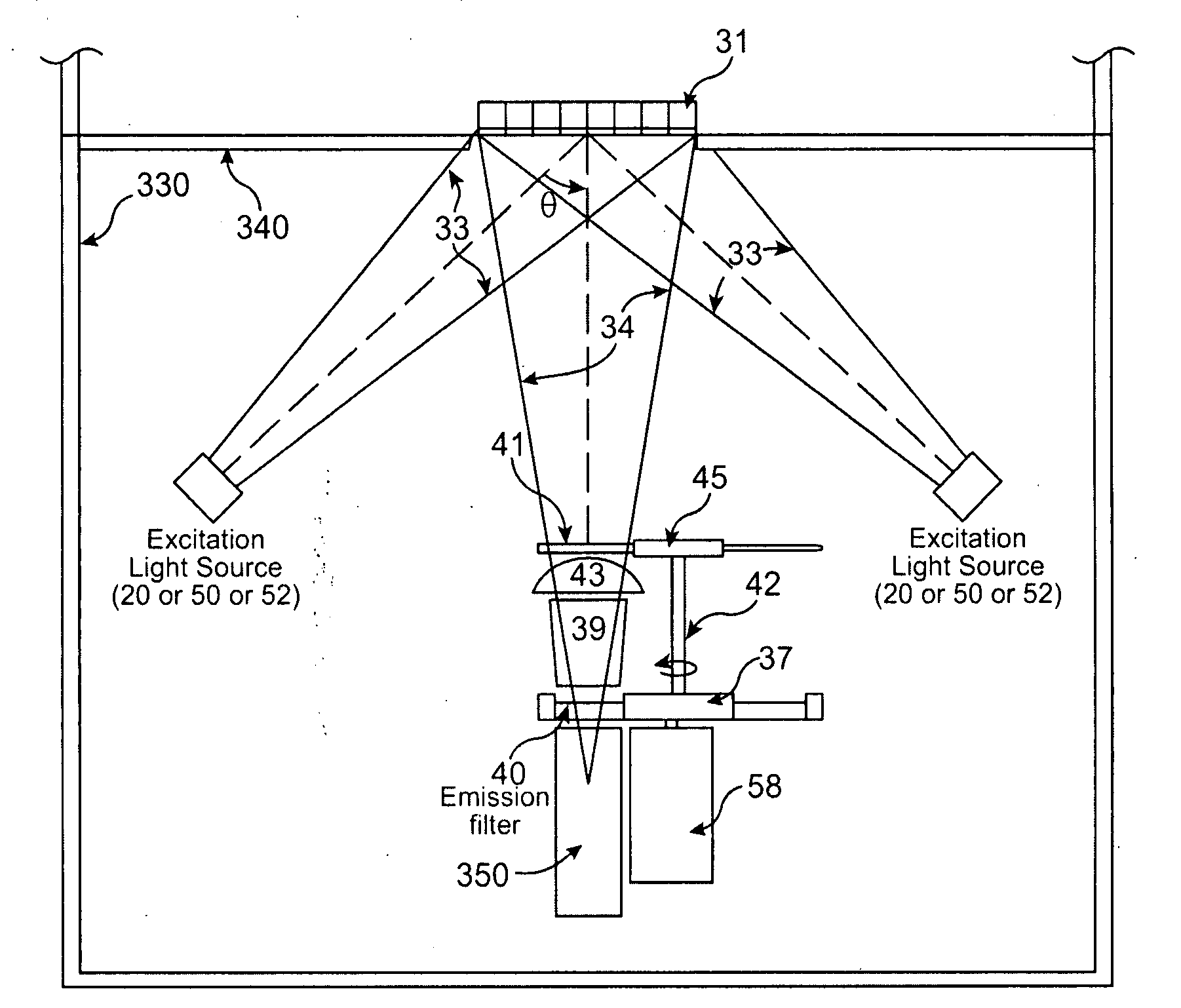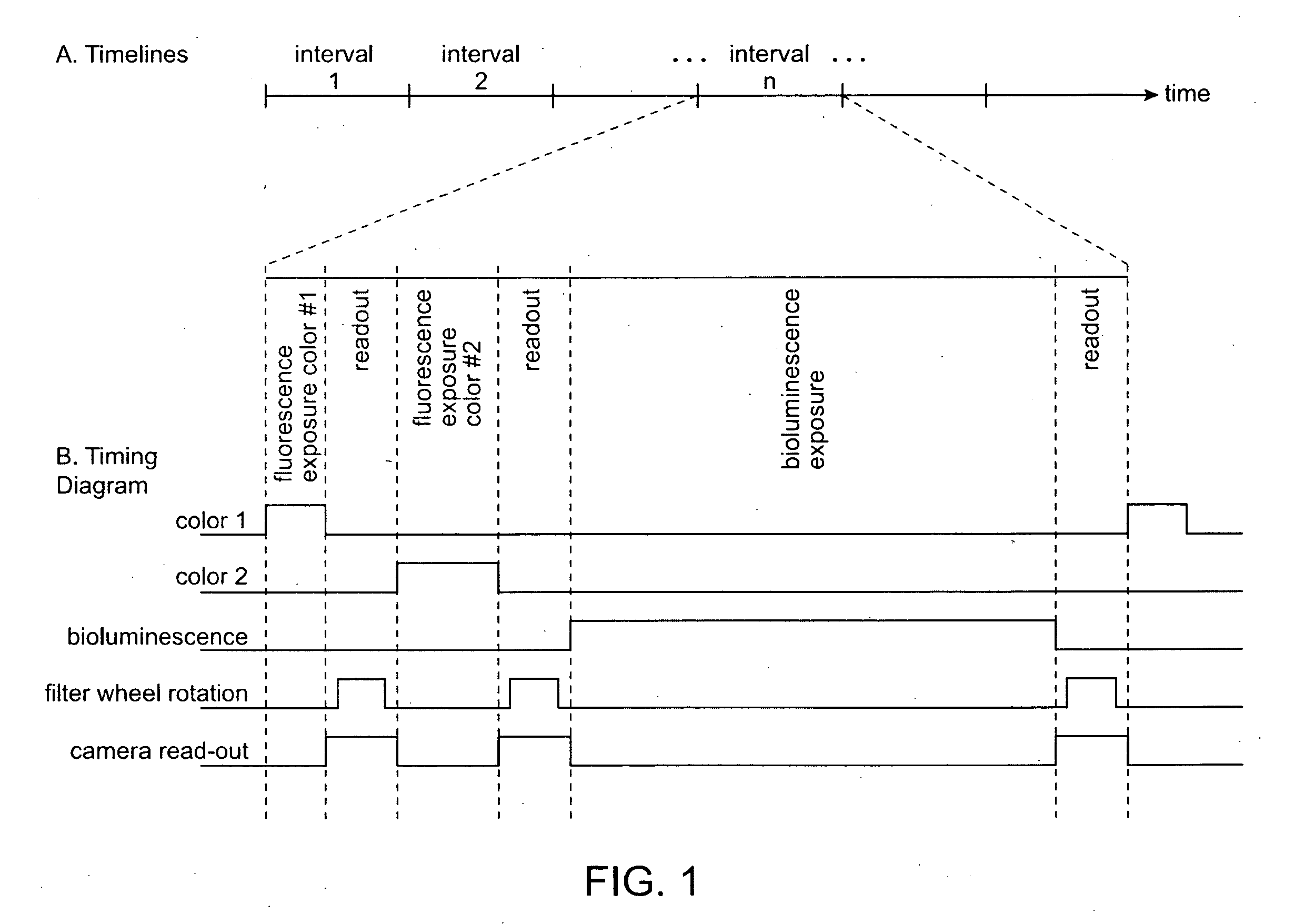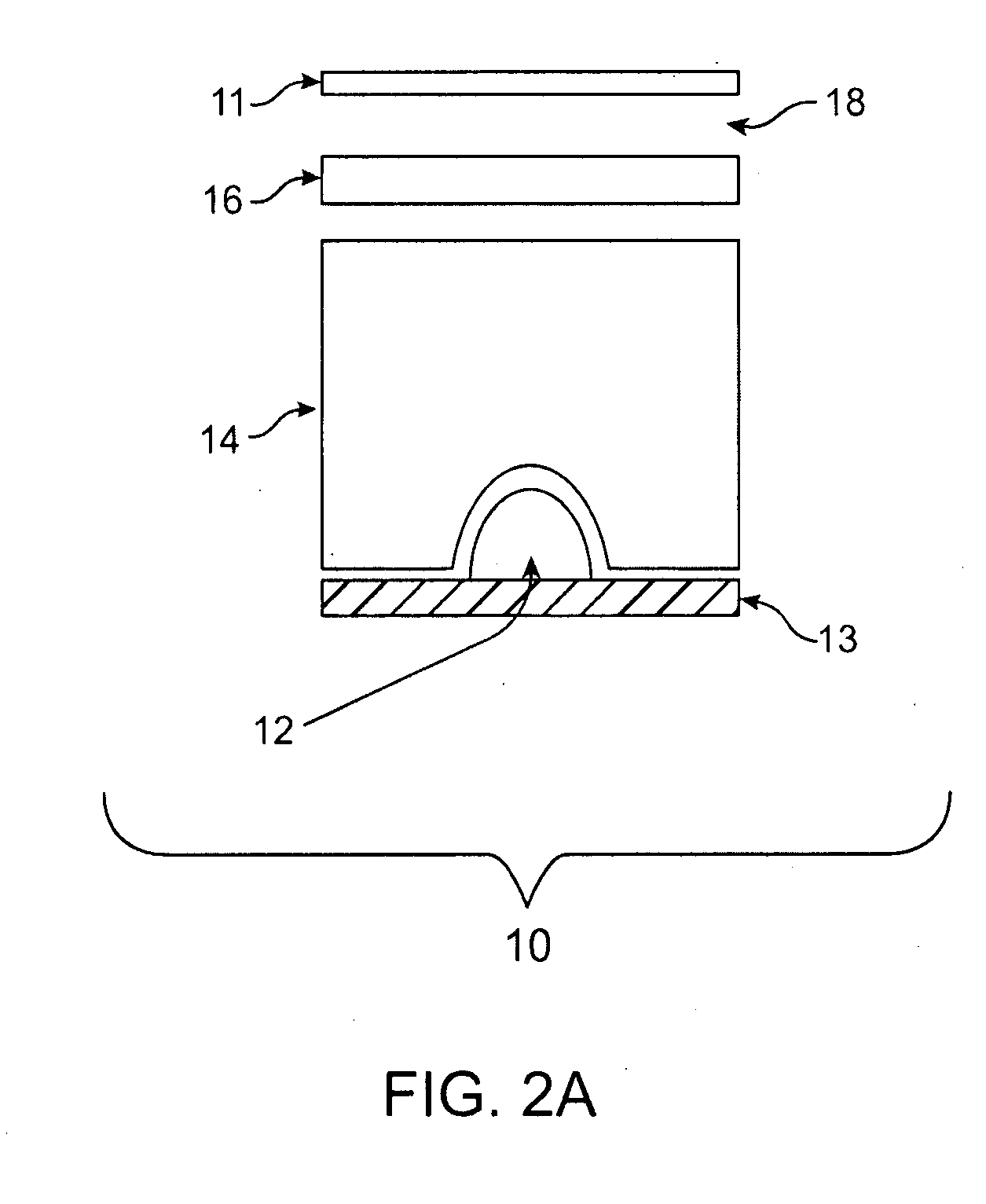Apparatus and Method for Interleaving Detection of Fluorescence and Luminescence
a technology of fluorescent signal and apparatus, which is applied in the direction of fluorescence/phosphorescence, optical radiation measurement, luminescent dosimeter, etc., can solve the problems of small fluorescence signal intensity compared to excitation intensity, background or non-specific fluorescence, interference from other fluorescence compounds than the label, etc., and achieve high throughput
- Summary
- Abstract
- Description
- Claims
- Application Information
AI Technical Summary
Benefits of technology
Problems solved by technology
Method used
Image
Examples
experimental examples
[0108]The following examples are intended to illustrate various embodiments of screening system (see FIG. 9 (180)) and in particular, its utility for high throughput agonist and antagonist drug screening in 384 well plates. The kinetic responses to multiple compound dilutions further suggest compound pharmacology and mechanism of action.
[0109]Samples were prepared as follows. Chinese Hamster Ovary Cells (CHO) endogenously express a G-protein coupled receptor (GPCR) that responds to purinergic compounds such as adenosine triphosphate (ATP) by increasing cytoplasmic calcium concentration. Cells were transfected and selected for stable expression of the apo-aequorin gene, which forms a bioluminescence complex sensitive to intracellular calcium (e.g., Cobbold P H et al. (1983), J Cell Sci 61:123-136; Shimomura 0 & Shimomura A, (1984), Biochem J. 228:745-9). CHO cells were thawed from frozen stocks and plated at a density of 30,000 cells / well in 20 μL growth media (DMEM High Glucose, 10%...
PUM
| Property | Measurement | Unit |
|---|---|---|
| divergence angle | aaaaa | aaaaa |
| divergence half angle | aaaaa | aaaaa |
| angle | aaaaa | aaaaa |
Abstract
Description
Claims
Application Information
 Login to View More
Login to View More - R&D
- Intellectual Property
- Life Sciences
- Materials
- Tech Scout
- Unparalleled Data Quality
- Higher Quality Content
- 60% Fewer Hallucinations
Browse by: Latest US Patents, China's latest patents, Technical Efficacy Thesaurus, Application Domain, Technology Topic, Popular Technical Reports.
© 2025 PatSnap. All rights reserved.Legal|Privacy policy|Modern Slavery Act Transparency Statement|Sitemap|About US| Contact US: help@patsnap.com



